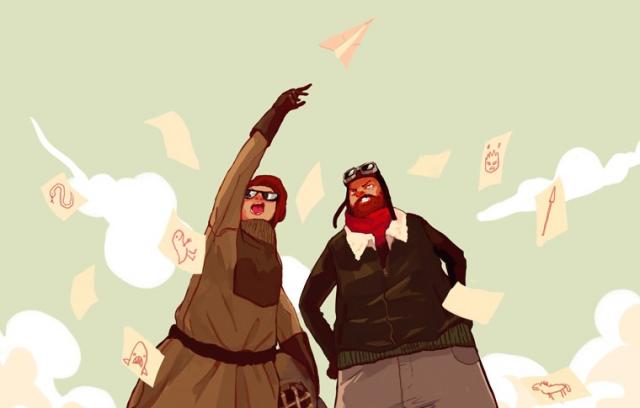
Ahead of the tragically limited run of The Epic at The Blue Room Theatre we caught up with writer, storyteller and performer Finn O’Branagáin to find out more about the show, what audiences can expect; and just how important storytelling is! Click through for the full interview.
How did the idea for the “The Epic” come about?
When Scott and I met, we realised we were two giant word nerds who loved obscure stories from around the world. While Scott was in Finland he saw how relevant their national myth was – that it is so present in their everyday live. So we started talking about what might be Australia’s story, since we don’t have anything like that.
We went looking into how stories had shaped different countries and societies. It started out as research but we quickly realised that these stories needed to be told. And then it became a conversation about cultural context and ownership of stories, so we unravel that knot through the show.
With so many myths, legends and stories to choose from (new and old), how did you narrow down your choices?
We basically picked ones that shaped something in society. And ones that made us excited or freaked us out. Basically the ones we loved the most. Very scientific!
How did you approach writing and devising “The Epic”?
We live in different states, so a lot of Skype and Google docs. We had a few developments face to face and consolidating what we’d worked out and had been practicing separately. It’s not been the most common process but we’ve made it work.
If you could be any mythic (or more contemporary) hero how would you be, and why?
Well, the hero I’m named after, Finn MacCumhaill is pretty great, but I’ve always thought of Lyra, from His Dark Materials, as a hero of mine. Also, Tank Girl. She’s a badass.
There is perhaps an (incorrect) assumption that “storytelling” is only really for children and something we are perhaps supposed to grow out of as we get older. Why do you think this is? And what do you see as being the importance of storytelling?
Definitely an incorrect assumption! We all tell stories every day, and they’re in music and TV and daily life. When we meet someone new, all we are is the sum of the stories we tell or have told about ourselves.
Maybe the idea that telling fictional stories or more magical stories as being for children is just about a shifting in how we receive stories – we happily watch TV or movies.
Storytelling is much more personal. The act of performing for someone makes it about them – we bounce off their energy and look them in the eye. They’re with us.
What can audiences expect from The Epic?
A super energetic and slightly poetic retelling of the best stories we know. They are weird or funny or scary or beautiful. With an amazing set by Desmond Tan to make us look like we’ve stepped out of a story book and under lights making us look like babes by the inimitable Joe Lui.
It’s basically an hour and ten minutes of us flailing our arms passionately and beaming our joy for these really exciting stories onto you, dispersed with bad puns and a delicately placed poop joke.
It may be occasionally educational, but only about cool stuff, we promise!
Are there any plans to take the show on tour? Or for future, longer runs?
Of course! We’d love to take it all around Australia, but catch us first at the Blue Room here in Perth.
—–
The Epic has a limited run at Perth’s Blue Room Theatre until June 13th. To find out more and to purchase tickets visit: http://blueroom.org.au/events/the-epic/
———-
